Introduction
This case study examines a project implemented in Somaliland to empower women and improve the nutritional status of infants, young children, and mothers in Maroodi-Jeex and Togdheer Regions. Malnutrition is a significant problem in Somaliland, with deficiencies arising from poor infant and young child feeding practices, limited dietary diversity, and frequent illnesses. This project aimed to address these issues by focusing on women’s knowledge, skills, and decision-making power regarding nutrition.
Background
Somaliland faces high rates of malnutrition due to several factors:
- Suboptimal infant and young child feeding practices
- Insufficient intake of diverse, nutrient-rich foods
- Frequent childhood illnesses
- Limited affordability of nutritious diets
A 2020 survey revealed concerning statistics:
- Only 3% of breastfed children received the recommended minimum meal frequency.
- Exclusive breastfeeding for the first six months was only at 30%.
- Vitamin and mineral deficiencies were prevalent among children and pregnant/lactating women.
Project Description
The project targeted women of reproductive age (WRA), caregivers, and community members. It aimed to:
- Empower women to lead positive changes in nutrition behaviors and practices.
- Improve women’s and children’s diets through education and counseling.
- Enhance dietary diversity by promoting kitchen gardens with nutrient-dense crops.
- Advocate for better nutrition policies and practices.
The project employed a cascading social behavior change (SBC) approach, with trained community nutrition workers providing individual and group counseling sessions. Additionally, peer-to-peer SBC sessions facilitated knowledge sharing within communities.
Achievements and Impact
The project’s achievements included:
- Increased knowledge about the importance of good nutrition for women and children.
- Improved infant and young child feeding practices.
- Enhanced dietary diversity through the establishment of kitchen gardens.
- Greater community awareness about nutrition and a growing interest in consuming nutrient-dense foods.
Challenges and Obstacles
Initial challenges included:
- Beneficiaries’ lack of awareness about the benefits of kitchen gardens and proper post-harvest practices.
- Reliance on traditional methods of food production and storage.
The project addressed these challenges through:
- Practical training sessions and demonstrations using local languages.
- Development of training manuals and counseling cards.
Sustainability
The project’s sustainability is based on:
- Equipping women with the knowledge and skills to manage their own kitchen gardens.
- Increased community demand for nutritious foods.
- Recommendations for long-term interventions, including improved food storage and transportation systems, education on food systems, and establishment of village extension centers for easier access to resources.
The case study highlights the need for:
- Multi-sectoral Collaboration: Integrating nutrition considerations into food, health, education, and social protection systems.
- Improved Food Systems: Enhancing storage, transportation, and access to nutritious foods.
- Education and Training: Providing ongoing education on food systems and home gardening practices.
- Support for Women Farmers: Establishing extension centers to provide resources and training specifically for women’s kitchen gardens.
- Food System Transformation: Implementing broader reforms to ensure the long-term sustainability of a healthy food system.
Conclusion
The project demonstrates the potential of empowering women to improve child and maternal nutrition in Somaliland. While traditional practices and limited resources pose challenges, the project’s success suggests that a focus on women’s knowledge, skills, and agency can lead to long-term positive changes.

